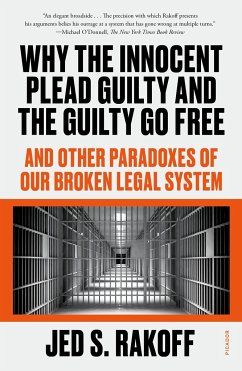
Convicted But Innocent
Wrongful Conviction and Public Policy
Versandkostenfrei!
Versandfertig in 1-2 Wochen
95,99 €
inkl. MwSt.

PAYBACK Punkte
48 °P sammeln!
Addressing the specific issues surrounding wrongful convictions and their implications for society, Convicted but Innocent includes: survey data concerning the possible magnitude of the problem and its causes; fascinating actual case samples; detailed analyses of the major factors associated with wrongful conviction; discussion of public policy implications; and recommendations for reducing the occurrence of such convictions. The authors maintain that while no system of justice can be perfect, a focus on preventable errors can substantially reduce the number of current conviction injustices.







![The Queen Vs. Louis Riel, Accused and Convicted of the Crime of High Treason [microform]: Report of Trial at Regina.-Appeal to the Court of Queen's Be Cover The Queen Vs. Louis Riel, Accused and Convicted of the Crime of High Treason [microform]: Report of Trial at Regina.-Appeal to the Court of Queen's Be](https://bilder.buecher.de/produkte/65/65492/65492155n.jpg)


![Trial of Joseph Bérubé and Césarée Thériault, His Wife [microform]: Convicted of Having Murdered by Poison Sophie Talbot, the First Wife of Bérubé, at Cover Trial of Joseph Bérubé and Césarée Thériault, His Wife [microform]: Convicted of Having Murdered by Poison Sophie Talbot, the First Wife of Bérubé, at](https://bilder.buecher.de/produkte/64/64536/64536115n.jpg)



